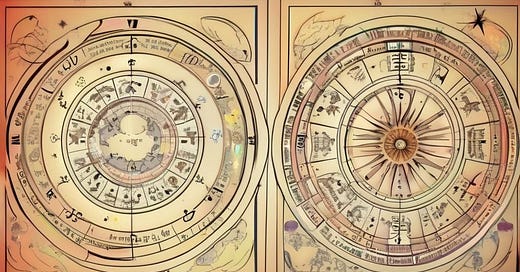Diagnosis and Absolution
Why does receiving a psychiatric diagnosis illuminate new understanding?
Why does receiving a psychiatric diagnosis seem to illuminate new understanding?
I’ve heard people say that getting a diagnosis is like getting a new manual for life but this time the manual actually applies to you.
But getting a diagnosis doesn’t and cannot give reasons for itself.
Personally, getting a diagnosis felt like absolution.
Thank god I am not at fault for all this difficulty.
Learning that autism is primarily a genetic condition added yet another layer of forgiveness onto itself.
No really, it’s not my fault.
This is an understandable reaction to a whole lot of heartache, sadness, grief, and loss.
The problem though, is the logic doesn’t follow.
The diagnosis itself is no more than a description of particular behaviors that are dysfunctional and disproportionately affect how difficult day to day life is.
A famous artist says “I have clinical depression, which is a medical diagnosis.” (1)
If you de-medicalize the language, it would be closer to this oversimplification:
“I spoke with a credentialed professional who validated that I am very sad. This sadness is outside of my control. This is why I’m very sad.”
We already know that behavior is rooted in biology and neurology.
To oversimplify, a horse doesn’t act like a fish because of its biological and neurological organization. Asserting that autism is rooted in biology and neurology isn’t new information at all. It’s obvious information repackaged as a cause.
My gripe is not the same as Szaz’s. The DSM is necessary and disability/dysfunction are real problems that warrant examination and resources. My problem is with conferring causality where there logically is very little.
Further problems ensue when professionals and experts assert that huge swaths of the population have debilitating disorder and dysfunction in their daily lives.
When 10% of the US population is deemed dysfunctional in some way based on lenient application of vague criteria, professional administration of these labels delegitimize themselves. (2,3)
Our experts and professionals need to be willing to draw the arbitrary but necessary lines between normality and disorder to ensure resources and attention to those who need it most. Our scientists and professionals need to practice humility when describing causes for complex human behavior.
We need to start asking better questions.
References:
1 What do we want from a depression diagnosis? Turkheimer
2 Neurodiversity NCI
3 CDC Study Estimates 2.2% of U.S. Adults Have Autism — Don’t Believe a Word of It Escher





This is such an important point. I’m a pediatrician and I’m verrrry wary of psychiatric diagnosis. I try to talk about conditions like anxiety, depression, ADHD as “you’re experiencing anxiety” and “she might have some traits of ADHD which certain parenting strategies might help.” I think diagnosis can be helpful when people have overwhelming dysfunction and then they are looking for the root cause. But too often, people experience certain aspects of a diagnosis without dysfunction and then lose their internal locus of control. Diagnosis can become a crutch and a reason to expect failure for oneself. It can be especially poisonous when talking about traumatic experiences when a person was actually handling the issue quite well. Whenever possible, I try to talk about the issue a patient is dealing with without labeling it, “often when people feel overwhelmed by their emotions they can learn tools to think about their emotions without going into a spiral”. It’s far too common for people to label themselves as their diagnosis rather than as someone figuring out a challenge.